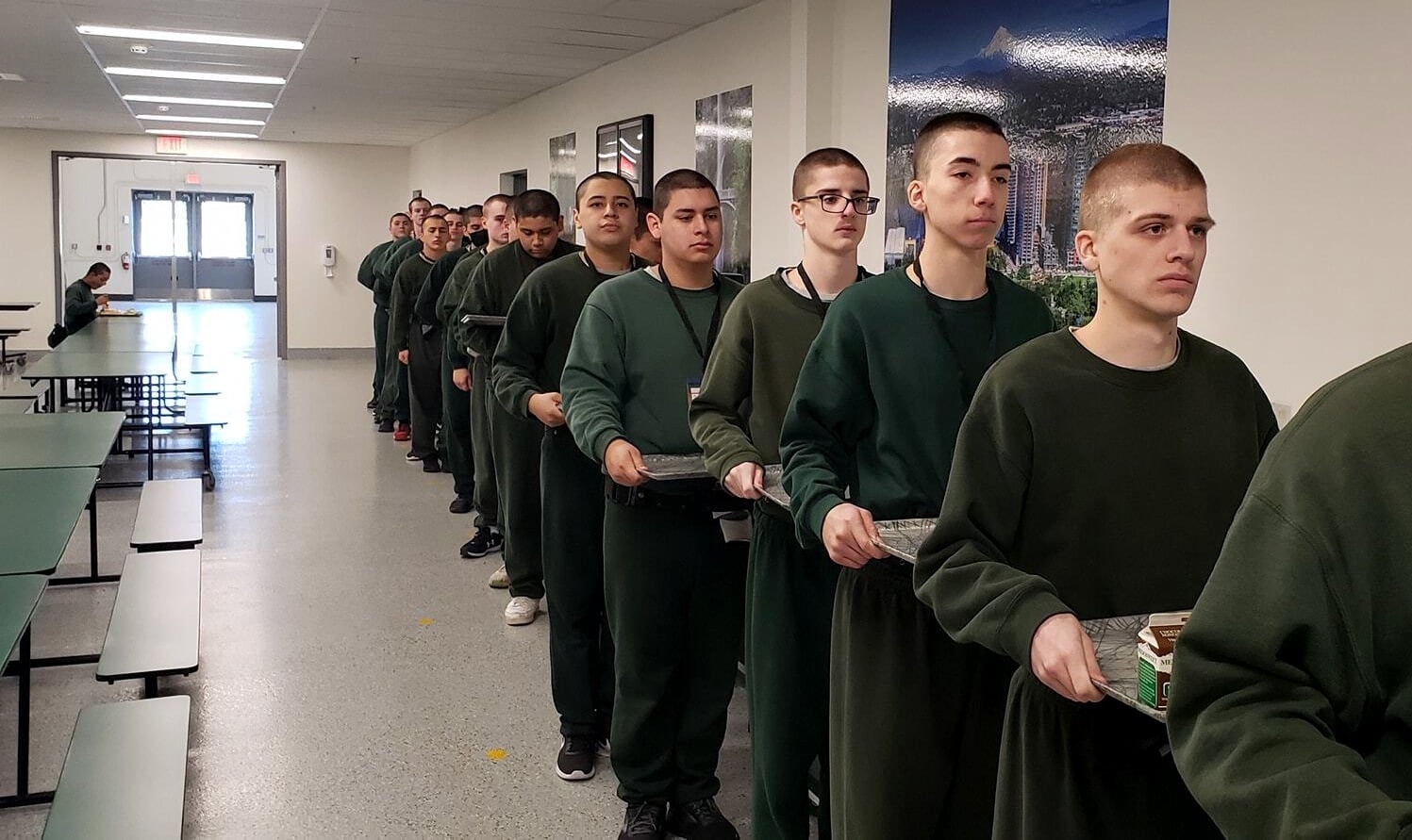

Published on: 08/25/2025
This news was posted by Oregon Today News
Description
OPB followed 27 students from first grade through high school as part of the Class of 2025 project to track the state's progress toward 100% high school graduation starting in 2025.
Raiden has long had a difficult relationship with school. He liked kindergarten: lots of playtime, the work wasn’t too hard and it was mostly OK to talk to his friends.
But first grade was more serious and less fun — a combination that bothered Raiden when he was 7 years old.

“I don’t like school,” Raiden told his mother, Angela Williams, in 2014, as part of OPB’s Class of 2025 project.
“Why not?” Williams asked.
“Because it’s too hard,” Raiden responded.
“They only give us a little bit of time to play.”
“Yeah, school’s not about playing — school’s about learning and being smart,” Williams explained.
Raiden responded simply, “I like to play.”
And though Raiden said he didn’t want to go on to second grade, he would persist. A series of sometimes rocky transitions followed, as he frequently changed schools from elementary through high school.
Raiden is one of 25 young people OPB followed from kindergarten in 2012 through high school as part of the Class of 2025 project, an effort to track Oregon’s progress toward a goal of 100% graduation tied to that class. Raiden started his education at Earl Boyles Elementary School like all the others in this cohort. But he, like all the other students, took a winding path. His school career was complicated by changing schools, but also by a factor that affects many students across the country: a diagnosis of attention deficit hyperactivity disorder.
Now 18 years old, Raiden faces a young adulthood he hopes will be smoother than the rocky road that led to his graduation.
Learning challenges, COVID-19 complicate school experience
Like many kids, how Raiden did in class often depended on who was in class with him. His ADHD could make it difficult to maintain focus all the time, leading him to rely on teachers and classmates for information he might miss.

By fourth grade, Raiden had already changed schools twice. At Riverview Elementary School in Vancouver, Washington, he had trouble fitting in. He had conflicts with other kids and was moved to a different classroom. Things improved, as a result, but the work kept getting tougher.
One of his fifth-grade teachers, Angie Swanson, said at the time that one-on-one attention was paying off for Raiden.
“He has shown a lot of progress academically,” Swanson said, but added Raiden struggled to work independently on standardized tests. “ I think it’s harder to stay focused for him because you’re not verbally talking to him.”
Two years later, his progress was lost as the pandemic struck. With school entirely online, Raiden struggled. With just a computer screen and little contact with teachers or classmates, he would become distracted. When he didn’t understand something, he had nowhere to turn. Meanwhile, his family had moved again to Gresham and the Centennial School District.
“There was this one time that I was on Zoom and we’re doing an assignment,” Raiden said when he was in middle school in fall 2020. “And my teacher went ahead when I didn’t have answers, right? So I asked her to go back.”
But as Raiden recalled, the teacher — over Zoom — directed him just to hand in what he had. Raiden felt discouraged because he knew some of his answers were wrong.

“It feels like they’re helping, but then it doesn’t seem like it,” Raiden said of his teachers at that time.
Angela Williams was working at a hotel during the COVID-19 pandemic, while her son was at home struggling with school. She recalled Raiden having failing grades across the board in his last year before high school.
Williams was frustrated. The multiple online platforms were confusing. It was nearly impossible to reach her son’s teachers. Distance learning seemed to be the cause of her son’s academic problems.
“I think most of it is due to the COVID situation ‘cause he’s hyperactive,” Williams said.

When schools fully reopened in fall 2021, Raiden faced new demands as a freshman at Centennial High School.
“He’s really friendly. He’s very funny. He’s very curious,” special education teacher Elizabeth McIntosh told OPB in 2021. “I would say the biggest challenge for Raiden was probably just the transition back to in person learning. But he’s made a lot of great progress.”
The distractions of the pandemic weren’t easy to shake off for many students, including Raiden.
“Raiden for the first two years of high school kind of blew it off,” Williams said
‘I graduated for you, now you need to do it for me.’
The vast majority of schools across the country reported a rise in behavior problems as students returned from the pandemic, according to the National Center for Education Statistics.
The rocky return from the pandemic also put up potential barriers to high school graduation. Oregon schools remained closed far longer during the pandemic than most other states. That could be a reason that high school freshmen like Raiden struggled with the transition back. The metric used to check if students have the credits needed to be on pace to graduate in four years fell 12% from 2019 to 2021.
In a recent interview, Raiden remembered how he would skip class and sneak out at night in his first year of high school.
“Basically, freshman year I stopped going to math, history,” Raiden said. “I kind of just went toward the wrong group of people and then my mom found out what I was doing.”
By the end of sophomore year, Raiden was well behind on credits. Williams felt something had to change.
Raiden is the eldest of Williams’ four children. She gave birth to him when she was a teenager herself. It created a special bond, a connection she would lean on to push her son in a new direction.
Williams remembered searching the internet for options. She found the Oregon Youth Challenge Program, a military-style boarding school in Bend with a reputation for using strict rules and a rigorous structure to straighten out struggling young people.
OYCP is a state-sponsored alternative high school that’s jointly funded by the US Department of Defense and the Oregon Department of Education.
“Our main population that we serve are those students that are at risk of not graduating on time with their cohort,” OYCP director Frank Tallman said. “We basically use a military style model. That’s our big claim to fame. That’s what we use to help get these kids back on track.”
Tallman emphasized OYCP is not a place parents can just send their kids. The student has to agree to come.
“When we go through the applications and we make our selections, part of that process is that we talk directly to the student themselves so they can accept the invitation to attend,” Tallman said.

Raiden didn’t want to go at first. Williams convinced her son by reminding him of an obligation he had to her.
“I got pregnant at a young age with Raiden, and I graduated when he was eight months old, if I remember right,” Williams said. “We always had this agreement that ‘I graduated for you and now you need to do it for me.’”
Williams and Raiden ended up visiting OYCP in Bend, where they were able to see the “cadets” on campus. Raiden learned he’d need to cut his hair, wear a uniform, give up his cellphone and abide by strict rules over every aspect of life inside and outside of class for the five-month term.
Challenge and structure help, until it’s gone
Raiden spent the spring semester of his sophomore year at the military school in Bend.
“It was a struggle,” Raiden said. “I don’t like being away from family … It definitely was hard. So I had to push myself through that.”
Raiden said the experience of being at the youth challenge program was more like a military boot camp than school, complete with daily march and drill practice. Everything was highly structured, down to cadets’ posture during meals.
“When you go inside, sit down ... you have to look at the table,” Raiden said. “And then if you’re talking to your neighbor in school, that’ll make you do pushups. They do it for stuff that you do wrong.”
It was the longest Raiden had been away from home, and Williams said she was anxious. But she was optimistic the rigid structure would help him turn things around.
“I think the most part that he hated was having to shave all his hair off and be bald,” she remembered with a laugh.
Raiden said the discipline was good for him. He missed his family, but he could sense a positive change happening. With fewer distractions, he found himself enjoying history class, a course he routinely skipped at Centennial.
“Honestly, I kind of liked it,” Raiden said. “It was a new start.”
In roughly half a school year, Raiden earned more credits than most students earn in a whole year. With 10 credits at OYCP, he went from unlikely to graduate on time to ahead of schedule. He felt like a new person when he returned to Gresham.
“It was like everyone didn’t know me because I changed. I was different. I looked different. My body shape was different.”
Centennial High School hadn’t changed, though. Readjusting to life at his old high school had its pros and cons.
It was good to be home, but without the tight rules of the boarding school hanging over him, Raiden got into trouble again. In the fall after his return, police caught Raiden riding a motorbike that wasn’t allowed on city streets.
Still, he graduated from Centennial High School on June 12, 2024 — almost exactly a year after completing his term at OYCP, and a full year ahead of the Class of 2025.
‘Hard time’ as an adult
In the year since, Raiden has cycled through at least five jobs. He was working a night shift at a warehouse when he spoke to OPB in the spring.
“I like to work and do stuff with my hands, and I have to be busy when I’m working,” Raiden said. “If not, I’ll be bored and I’ll go wander off and do something else.”
But he didn’t like the nighttime hours. Williams was concerned her son might lose direction again.
“Now that school’s over, it seems like adult life is even harder because he can’t stay focused,” Williams said. “There’s no structure, there’s no thrive at the moment for a job or for doing something. So I feel like Raiden is going to have a hard time as an adult as well.”
Williams said the key is finding a career Raiden is interested in and getting him the necessary training to do it.
Even though school was often challenging for Raiden, Williams sees at least some college classes as a necessary step. Raiden’s open to that.
Year after year, OPB has asked students in the Class of 2025 project what they want to be, or do, when they grow up. Raiden was prepared for that question the last time OPB asked.
“When I grow up, I want to be an automotive mechanic,” he said. He’s always liked cars and motorcycles, so the idea isn’t new.
Raiden’s past academic struggles and the potential cost of college are concerns. But if being a mechanic is what he truly wants to do, it’ll be different from high school. He’ll feel motivated like he did at youth challenge school, and they’ll find a way to make it work, Williams told her son.
“And he is like, ’Oh, you’re right, mom. You’re right,’” she said.
News Source : https://www.opb.org/article/2025/08/25/oregon-education-adhd-military-school-student-portland/
Other Related News
08/27/2025
Caldera Arts said in a statement that the employee was terminated immediately and that the...
08/27/2025
Weston Halsne a fifth grader whos just 10 years old told reporters a friend saved him by l...
08/27/2025
Get ready for Oktoberfest Grab our limited-edition pint glasses and fun stickers to show ...
08/27/2025
A storied steel-and-glass luxury dwelling the latest addition to WilliamKaven Architecture...
08/27/2025










